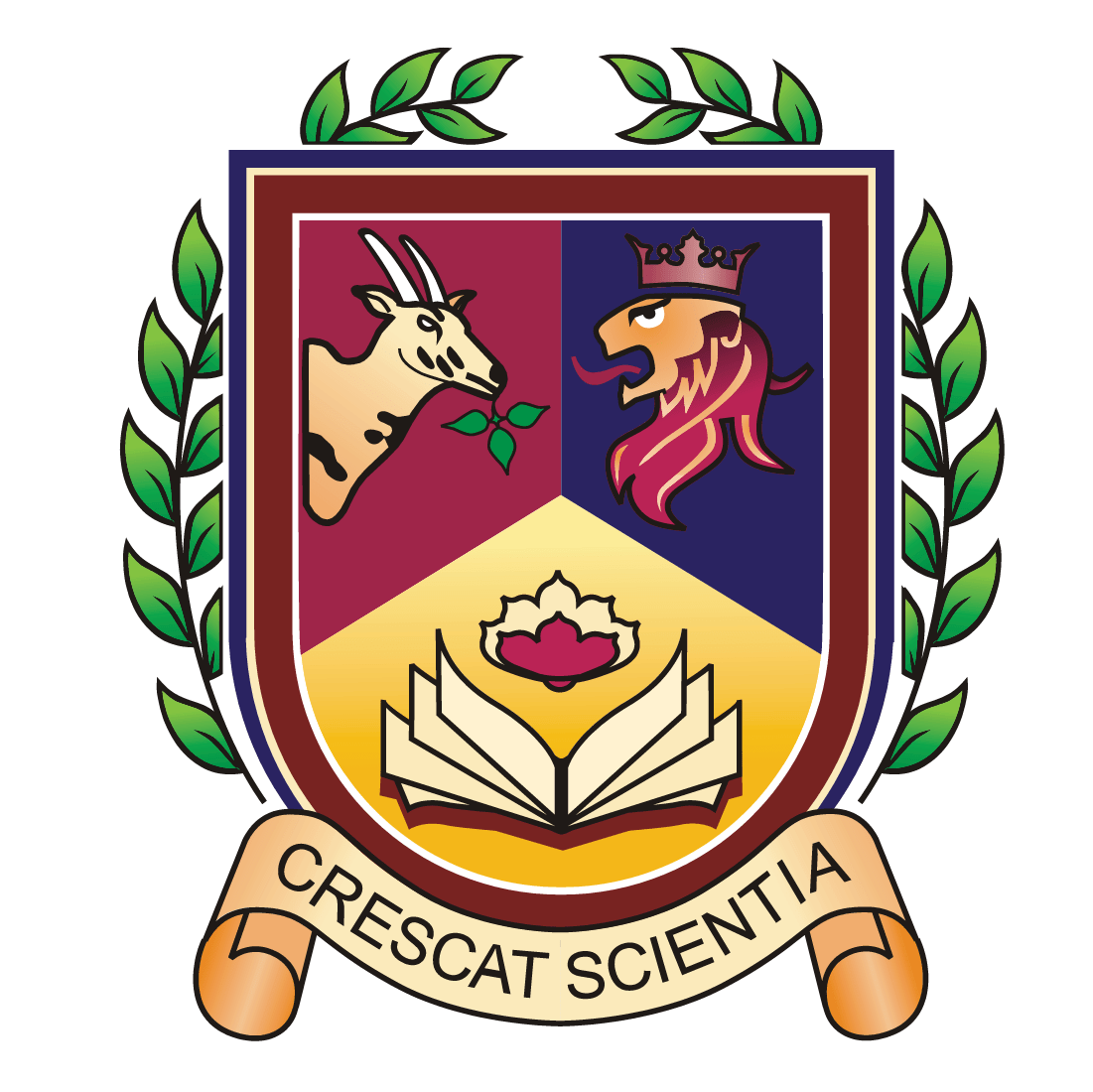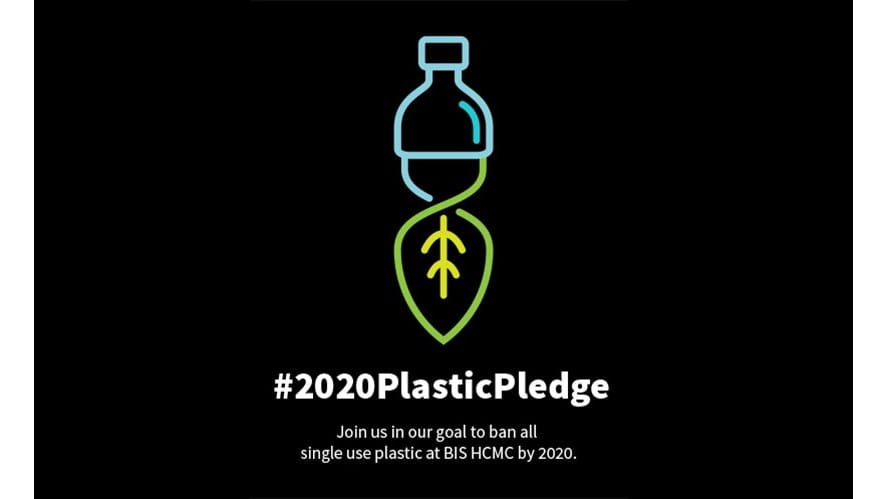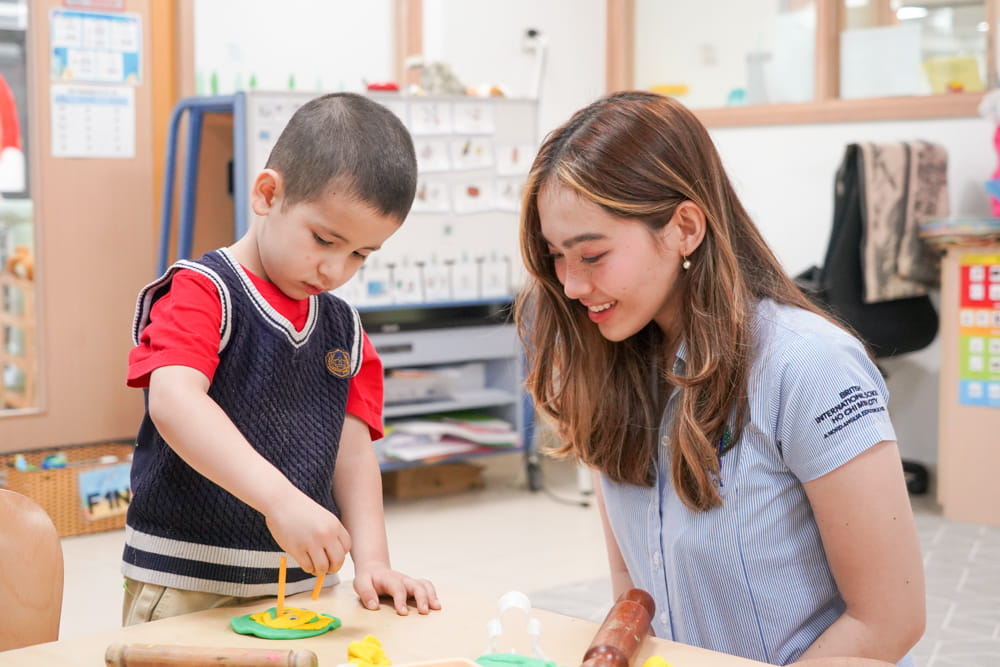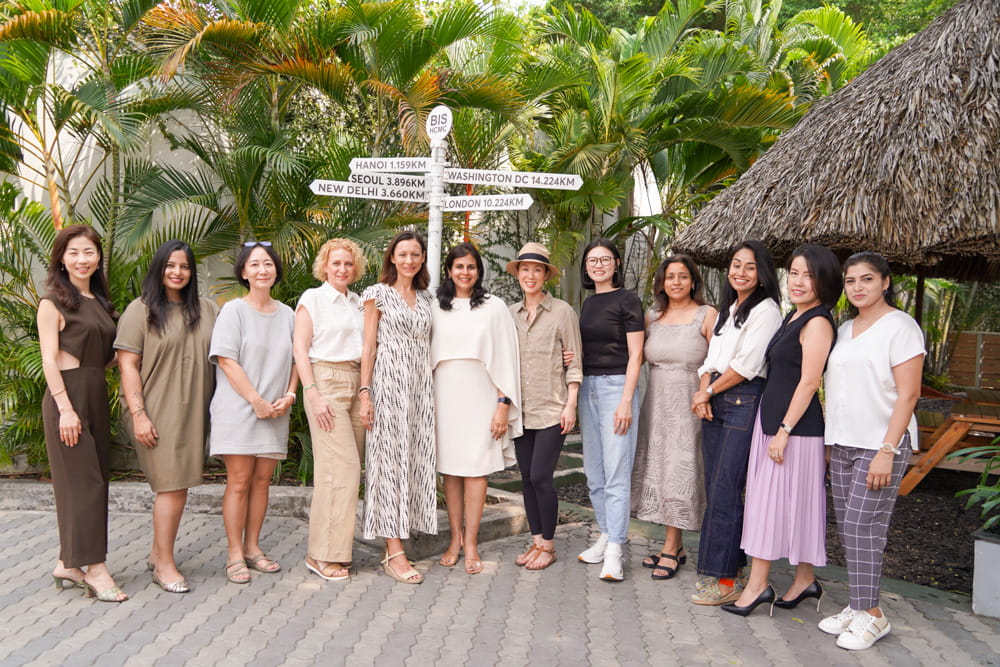BIS HCMC 2020 Plastic Pledge Here at the British International School Ho Chi Minh City, we have pledged to remove all single-use plastic from all three of our campuses by 2020. This is an exciting step in ensuring that we teach our students about sustainable living and a crucial part of meeting the Global Goals for Sustainable Development.
At the British International School, Ho Chi Minh City we have pledged to remove all single-use plastic from all three of our campuses by 2020. This is an exciting step in ensuring that we teach our students about sustainable living and a crucial part of meeting the Global Goals for Sustainable Development.
Our motivation for the 2020 Plastic Pledge
Have you ever stopped to think about your plastic consumption? Plastic is cheap, durable and convenient which means it is often the go-to material for bags, straws, food packaging, cups, cutlery and wrapping. Most of us consume vast amounts of plastic every day.
Unfortunately, plastic is utterly devastating for the environment. After plastic is thrown away, it is either burned, taken to landfill sites or it may even end up on the street, as we found out in our latest Thao Dien clean up. Burning plastic is very dangerous as it releases toxic smoke in to the atmosphere which can contribute to air pollution problems. Air pollution is a massive problem in Saigon. One in every ten deaths in Vietnam is due to contaminated air - it is four times more deadly than traffic accidents. Plastic on the street costs Vietnam millions of dollars every year; it is an eyesore and it affects the tourism industry and therefore the economy. If plastic ends up on the street, it can easily find its way into waterways which lead eventually to the sea. Sadly, plastic is having a catastrophic effect on our oceans and marine life, destroying delicate ecosystems. Animals accidently eat the plastic and, as it can’t be digested, it tricks their stomachs in to thinking they are full. Tragically, this results in the animal starving to death. Plastic enters the food chain so when humans eat seafood they could also be ingesting harmful plastic particles. It is thought that 90% of sea animals have eaten plastic and if we continue to use this much plastic, there will be more plastic in the sea than fish by 2050. Even when plastic makes its way to landfill sites, it is extremely harmful for the environment. Plastic never goes away. It can take from 100-1000 years for plastic to break down – into tiny toxic particles. Even when it has broken down and we can’t see it anymore, it is still there. That plastic straw you use will be on the Earth forever.
Unfortunately, in our host country Vietnam this problem is particularly prevalent. Recent studies have shown that 85% of the waste collected in Vietnam is being buried without treatment in landfill sites, 80% of which are unhygienic and pollute the environment. In rural areas, only 40-60% of the waste is collected while the rest is discharged into canals and rivers which flow directly in to the sea (VN express, August 2017). A study in 2015 identified five countries as the ‘worst ocean polluters’. These five countries are thought to be responsible for 60% of the plastic pollution in the ocean - The Philippines, China, Indonesia, Thailand and… Vietnam.
We have a responsibility to lead the change in our community
Our school community recognises that we have a responsibility to reduce our plastic consumption in order to ensure our environment is safe for future generations to come. Therefore, the BIS HCMC 2020 Plastic Pledge was born! We have set out the following objectives to achieve by 2020:
- Ban all single-use plastic items at BIS HCMC.
- Reduce and replace the plastic items for reusable and biodegradable products.
- Raise awareness of the impact of single-use plastics on the environment.
- Set up composting facilities and a plastic recycling plant.
- Change attitudes within our school community, to instigate change within the wider community.
- Clear guidelines for changes that can be made by all members of the school community.
- Events and activities clearly aligned to this mission using sustainable practices, particularly around producing resources and merchandise.
We have already started on the path to becoming a single-use plastic free school and it was particularly exciting to see a plastic free Global Café during our International Week celebrations at the Junior Campus last week. We hope that you can join us on our mission to reduce plastic consumption – we challenge you to refuse plastic straws in restaurants or to bring your own reusable bag out shopping. If you would like to support our plastic free journey, then please don’t hesitate to bring your ideas to one of our members of staff.
Support our plastic free journey.
Share your ideas by using the hashtag: #2020PlasticPledge
We do not inherit the earth from our ancestors, we borrow it from our children.
Ms Alicia, Year 3 class teacher and English leader







